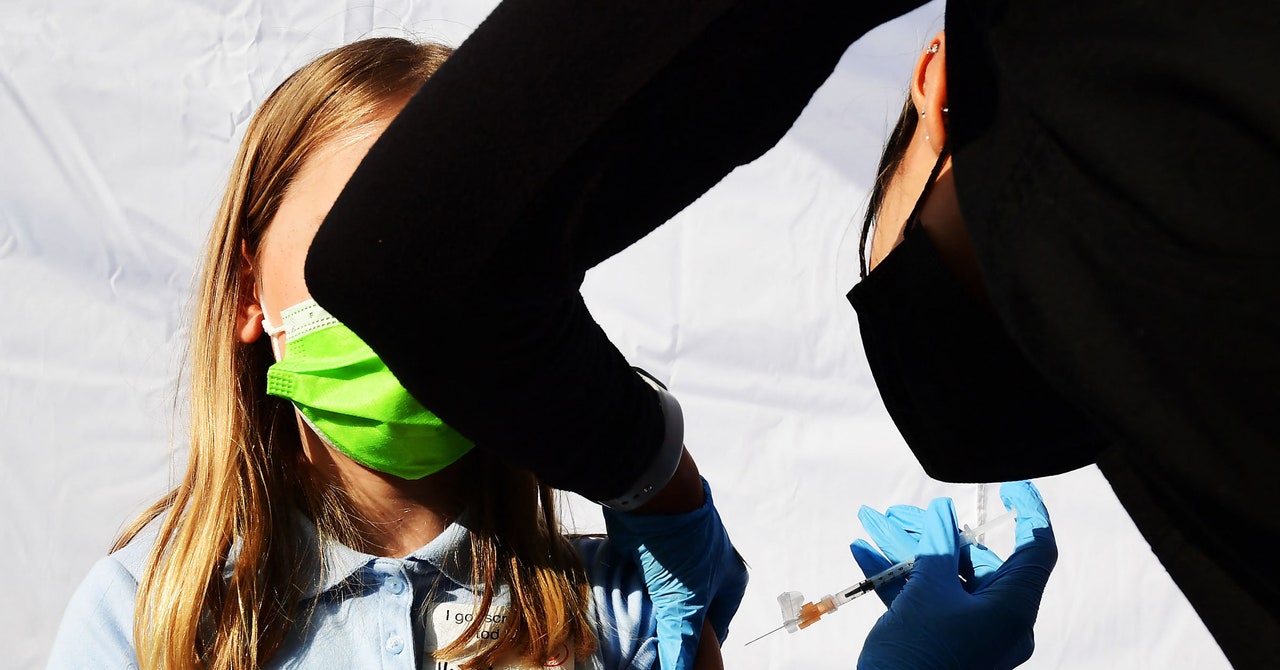
“I have actually been fielding a lot of calls from really desperate families who are at their wits’ end,” says Yvonne Maldonado, a pediatrician and professor of epidemiology and population health at the Stanford University School of Medicine, and principal investigator of the Pfizer vaccine trial there. “I don’t have great answers. It’s frustrating and it is frightening.”
It’s some comfort, she points out, that so far Omicron appears to produce mild symptoms in many kids—though whether the variant is truly mild in all individuals or only blunted in population-level studies by more widespread immunity remains to be untangled. “The likelihood that a child will be hospitalized is well under 1 percent,” Maldonado says. “But still, it’s not zero. Where we work, we’ve seen lots of children come into the hospital with respiratory failure or, at the very least, respiratory distress where they need to be on oxygen. That can be really distressing to families. And we don’t know what the long-term consequences of having Covid are going to be in adults or kids.”
The rise in kids’ case numbers has also made it harder to manage the return to school for the spring semester. “Our school district set a metric of 5 percent positivity, and in one day back almost all the schools reached that metric,” says Kawsar Rasmy Talaat, a physician and associate professor of international health at the Johns Hopkins Bloomberg School of Public Health in Baltimore, where she leads a trial of the Pfizer vaccine for kids 12 and under. “Just because of the sheer numbers of people getting infected with Omicron, we’re seeing a huge increase in the number of children also being affected and hospitalized.”
Nationwide, the school picture is chaotic. In the week beginning January 2, 5,409 US schools switched to remote learning on at least one day, according to the tracker Burbio, which aggregates more than 80,000 K–12 calendars. Schools in Atlanta and five Georgia counties returned to classrooms Monday after a delayed start to the year, while ones in the Twin Cities and suburbs went remote to protect students. In New York City on Tuesday, students staged a citywide walkout to protest for social distancing and remote options, and in Chicago, the teachers’ union agreed to end a five-day walkout over safety concerns. In northern Virginia, parents reported receiving pleas to stand in as substitutes, and in Michigan, a teacher tweeted about schools missing entire grade levels of staff.
Parents constantly think about risk, whether that’s when introducing their kid to solid food, letting them climb a stepladder, or deciding whether to send them to school during a bad flu season. But thinking through the risks of Covid is uniquely challenging, because official advice has seemed to shift so often—and because, in addition to the vaccine, new treatments like antiviral pills and monoclonal antibodies aren’t yet available to younger kids.
“The common cold and flu and RSV are known entities,” says Jennifer Shu, an Atlanta pediatrician in private practice and medical editor of the American Academy of Pediatrics’ parent advice site. “We have some remedies, including antivirals approved for the flu. Whereas for Covid, even though there are multiple medicines, many of these are not approved under the age of 12. So they’re not even an option for children.”


